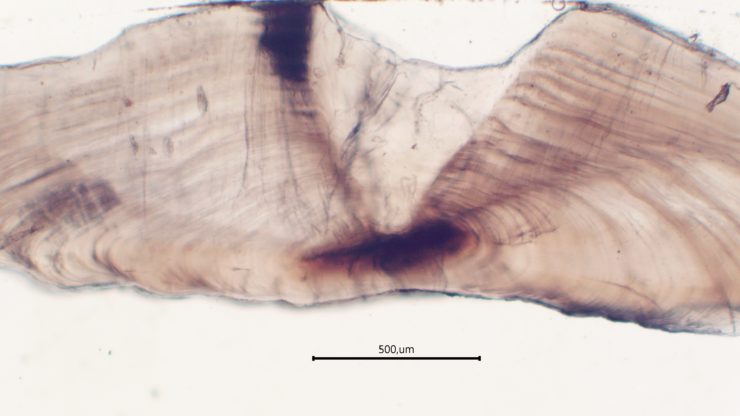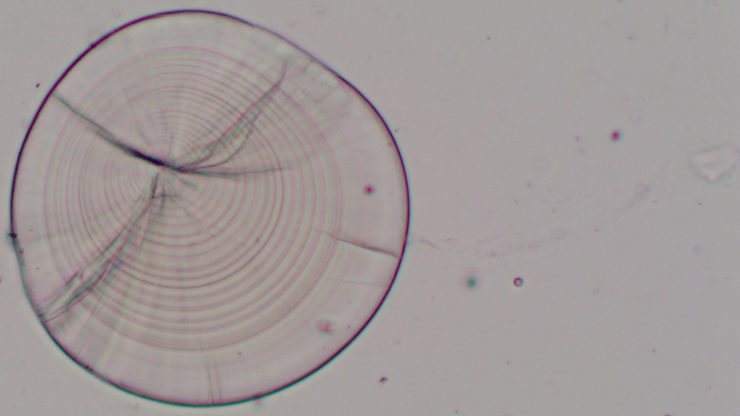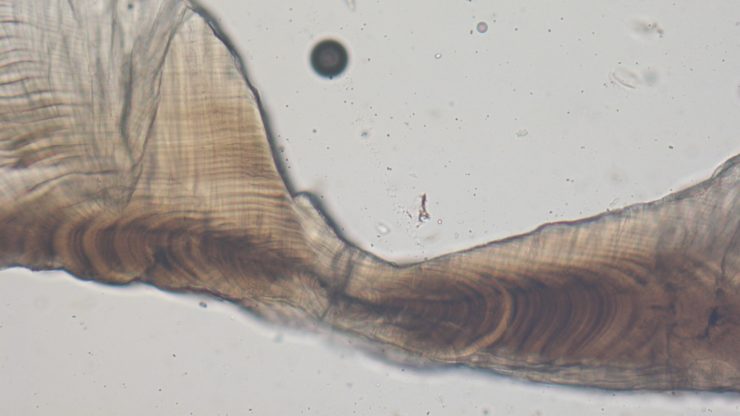Otolith Research Lab

Otolith Research Lab is a specialised end-to-end solution for all your otolith needs. We bring with us nearly two decades of expertise in techniques relevant to otolith extraction, processing and analysis. Otolith Research Lab enables and encourages fish biologists and marine ecologists to answer all their otolith-based questions while removing the often rate-limiting task of processing and analysing the microstructure of fish otoliths.
Otolith Research Lab is more than a laboratory service and we are happy to provide advice on how otolith techniques can match your specific research goals. We can assist at every stage of the research process with basic and advanced services pertaining to ageing, growth and early lite history traits of marine fish derived from otolith microstructure. We are also happy to assess the feasibility of your otolith samples. We can provide training courses to your students.
SERVICES
Otolith extraction for larvae, small and large fish.
Storage: dry, slide mounting or embedding.
Micro -and macro- structural observational data:
- Ageing (days and years)
- Planktonic larval duration
- Back-calculating hatch dates
- Age at settlement
- Age at capture date
- Size at hatching
- Size at settlement
- Daily growth rate
Digital image and Excel data provided
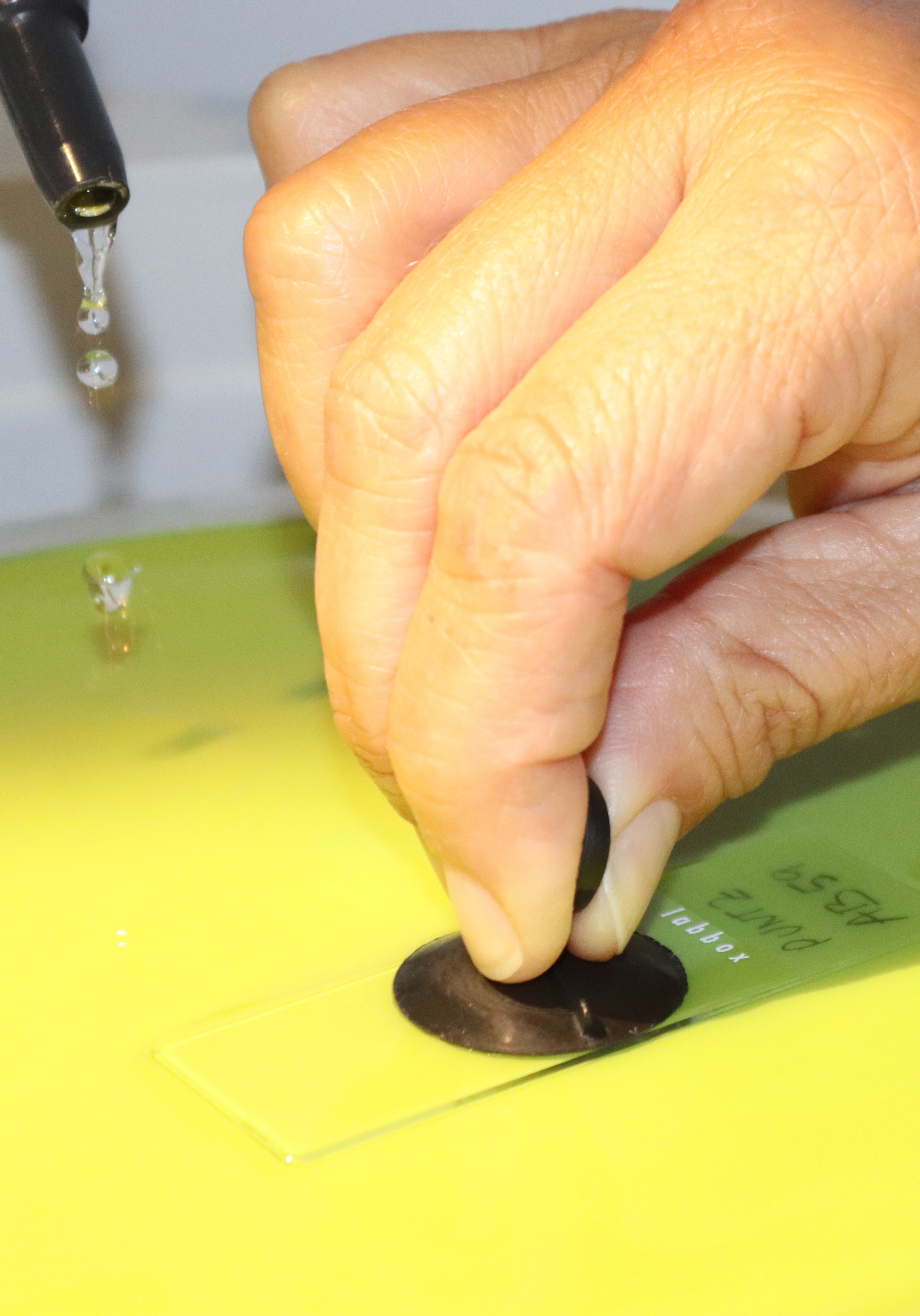
For a more detailed information on services and costs, please contact: otolithservices@ceab.csic.es
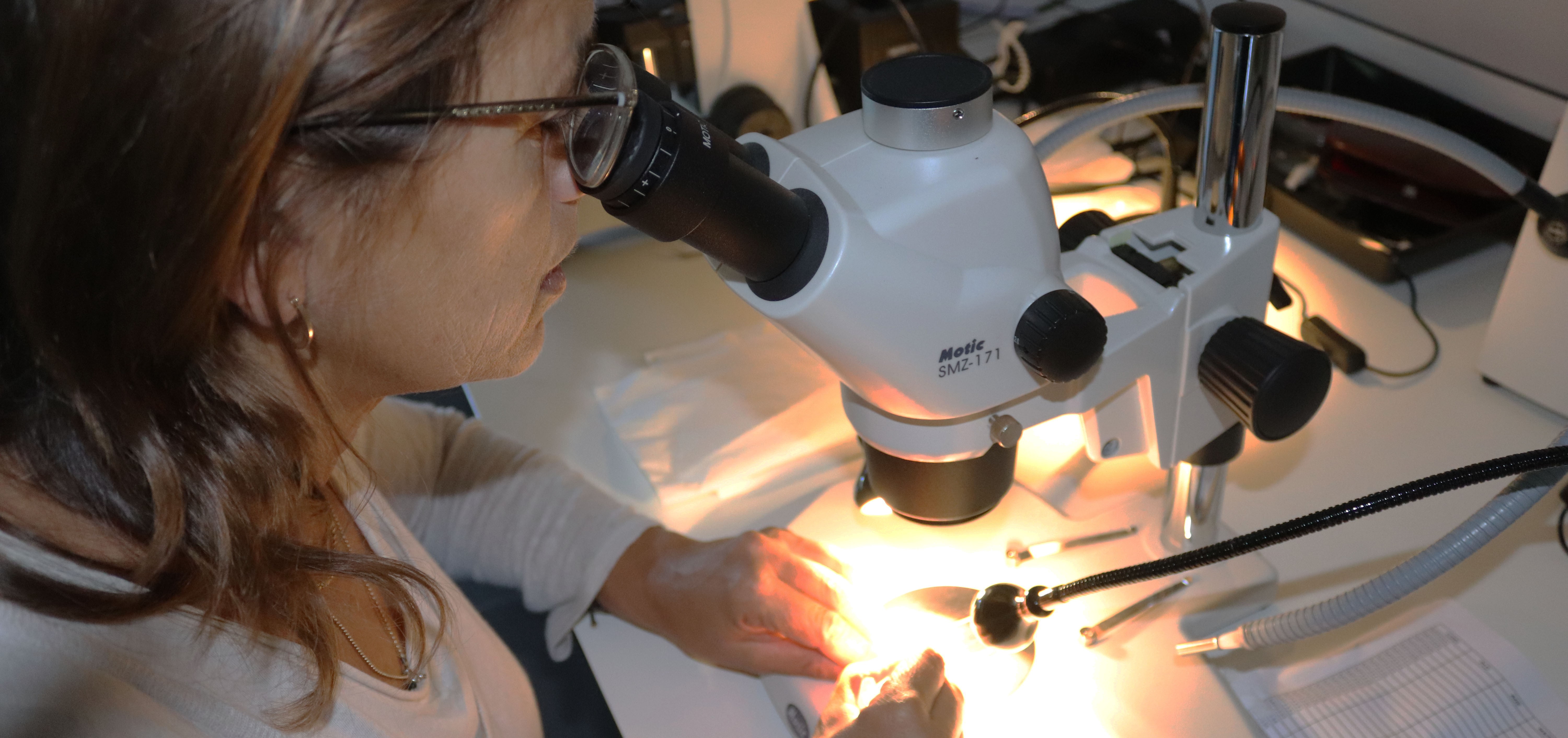
CENTERS AND INSTITUTES that have employed Otolith Research Lab services:
- Dr. Ana Gordoa CEAB-CSIC. Consejo Superior de Investigaciones Científicas (Spain).
- Prof. Geoff P. Jones. JCU. James Cook University (Australia).
- Prof. Serge Planes. CRIOBE. Centre de Recherches Insulaires et Observatoire de l’Environnement (Moorea).
- Prof. Jeffrey Shima. Victoria University of Wellington. Coastal Ecology Lab (New Zealand).
- Dr. Haritz Arrizabalaga. AZTI. Sustainable Fisheries Management (Spain).
- Prof. Martin Reichard. Institute of Vertebrate Biology. Czech Academy of Sciences (Czech Republic).
- Dr. Carmen da Silva. University of Queensland. The Perfomance Lab (Australia).
- Dr. Flora Laugier. Muséum National d’Histoire Naturelle, Département milieux et peuplements aquatiques (France).
PUBLICATIONS
Buñuel, X, Alcoverro, T, Romero, J, Arthur, R, Ruiz, J.M, Pérez, M, Ontoria, Y, Raventós, N, Macpherson E, Torrado H, Pagès J. Warming intensifies the interaction between the temperate seagrass Posidonia oceanica and its dominant fish herbivore Sarpa salpa. Marine Environmental Research 165 : 105237 (2021)
Gordoa, A, Fraile, I, Arrizabalaga, H, Raventós, N. Growth of Mediterranean young-of-the-year bluefin tuna Thunnus thynnus (Scombridae): regional differences and hatching periods. Scientia Marina, 85(2): 61-69 (2021)
Raventós, N, Torrado, H, Arthur, R, Alcoverro, T, Macpherson, E. Temperature reduces fish dispersal as larvae grow faster to their settlement size. Journal of Animal Ecology, 00: 1-14 DOI: 10.1111/1365-2656.13435 (2021)
Torrado, H, Moure, B, Raventós, N, Carreras, C, Tintoré, J, Pascual, M., Macpherson, E. Impact of early life traits in larval dispersal: a multispecies approach using backtracking models. Progress in Oceanography : 102518 (2021)
Mir-Arguimbau, J.; Balcells, M.; Raventós, N.; Martín, P.; Sabatés, A. Growth, reproduction and their interplay in blue whiting (Micromesistius poutassou, Risso, 1827) from the NW Mediterranean. Fisheries Research 227 : 105540 (2020)
Torrado, H, Carreras, C, Raventós, N, Macpherson, E, Pascual, M. Individual-based populations genomics reveal diferent drivers of adaptation in sympatric fish. Scientific Reports 10 : 12683 (2020)
Schunter, C.; Pascual, M.; Raventós, N.; Garriga, J.; Garza, J. C.; Bartumeus, F.; Macpherson, E. A novel integrative approach elucidates fine-scale dispersal patchiness in marine populations. Scientific Reports 9 : 10796 (2019)
Schunter, C.; Pascual, M.; Garza, J. C.; Raventós, N.; Macpherson, E. Kinship analyses identify fish dispersal events on a temperate coastline. Proceedings of the Royal Scientific B 281 : 1785 (2014)
Berumen, M. L.; Walsh, H. J.; Raventós, N.; Planes, S.; Jones, G. P.; Starczak, V.; Thorrold, S. R. Otolith geochemistry does not reflect dispersal history of clownfish larvae. Coral Reefs 29(4) : 883-891 (2010)
Macpherson, E.; Raventós, N. Relationship between pelagic larval duration and geographic distribution of Mediterranean littoral fishes. Marine Ecology Progress Series 327 : 257-265 (2006)
Macpherson, E.; Raventós, N. Settlement patterns and post-settlement survival in two Mediterranean littoral fishes: influences of early-life traits and environmental variables. Marine Biology 148(1) : 167-177 (2005)
Raventós, N.; Macpherson, E. Planktonic larval duration and settlement marks on the otoliths of Mediterranean littoral fishes. Marine Biology 138(6) : 1115-1120 (2001)
Gordoa, A.; Molí, B.; Raventós, N. Growth performance of four wrasse species on the north-western Mediterranean coast. Fisheries Research 45(1) : 43-50 (2000)



